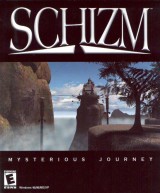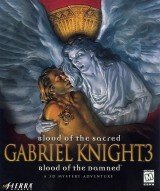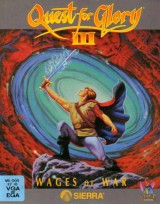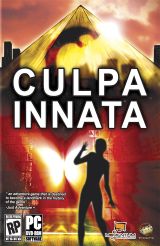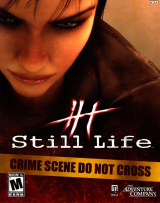Review for Not Another Weekend
Love ’em or hate ’em, the 1980s were certainly a distinctive period, with vibrant colors, bold styles, overproduced music, and cheesy action flicks—and of course a major breakthrough for adventure games. Not Another Weekend, an homage to this decade and the point-and-click offerings it spawned, offers a delightful blend of puzzle-driven escape and irreverent humor, with an intriguing dash of horror to boot. Its premise is certainly simple, but it’s got a fun, quirky story, clever moments of self-reflexivity, and plenty of solid gameplay to keep you engaged throughout. Occasionally it sacrifices depth for a quick pace, but all things considered it’s a highly enjoyable nostalgia-fueled adventure that wonderfully emulates the era in which games very much like this first came to prominence.
It’s the late eighties, and Mike Melkout is the disgruntled bellboy of the Hotel 404—a “6 star” establishment (or so its owner, Bernie Boss, claims). Mike is mistreated by Bernie, who is cruel to his entire staff except for the maid, to whom he shows kindness for entirely selfish reasons. The titular weekend starts off typically badly for Mike: At 7:00 a.m. sharp, he is summoned from his squalid living quarters on the ground floor of the hotel as his boss barks orders and hurls personal insults at him and won’t even let him use the elevator for an early-morning errand. When Mike fetches a wine bottle from the cellar, however, a startling development occurs when he vows to an ancestor’s brain—floating in a jar of fluids like something out of an old sci-fi movie—that this weekend will be different than the others. Apparently receiving instructions from this eerie specimen telepathically, Mike promises to rid the hotel of all its employees and guests by the end of the weekend, after which time a mysterious ritual can be enacted.
This somewhat unsettling revelation and the ritual Mike promises to enact bookends Not Another Weekend with stylistic excursions in horror. Everything in between, however, is zany and light-hearted. Your quest to clear the Hotel 404 will see you become entwined in a complicated marriage, help an aging adventurer set out on his next big trek, and aid the failing careers of a washed-up pop singer and a professional wrestler. The story is largely divided into vignettes, with each guest and employee being the focus of their own unique narrative arc, but there’s a modicum of overlap between these episodes. Along with a smart utilization of the ensemble cast throughout, this makes the game feel like a complete and unified work that unfolds over the span of around ten or twelve hours. The gameplay allows for a quick tempo, and with references to period-appropriate action films, science fiction, and—yes—adventure games frequently peppered in, the experience feels like a whirlwind odyssey through the Decade of Greed.
Mike has a dreary gothic energy and an appearance that vaguely resembles a character Johnny Depp might have played in an early Tim Burton film. He possesses a sardonic wit that he will occasionally turn loose on the player, such as when you try to use inventory items incorrectly. Amidst other more predictable stock responses, sometimes Mike will face the camera and say something like, “Throwing everything at the wall to see what sticks, are we?” And yet despite his sarcastic sense of humor and some of the ethically questionable things he does to empty the hotel, Mike is not cruel for cruelty’s sake, and there are a few moments when selecting a particularly rude dialogue option will have him refuse, instead serving up a playful rebuke for your inconsideration.
Appropriately, Mike is both the most relatable character and the one with the most complexity, having an enigmatic family history with the hotel, but the other characters nicely round out the cast. There’s Ritz Buganan, the lifeguard who flirts (or more) with pretty much everybody. Archaeologist Westy Jones is a fun if not-so-subtle reference to one of the most iconic adventurers of all time. The Funnies, a family with vaguely sitcom-esque qualities, play an important role as well. Some of my favorites are Jonny Cocktail, the charismatic, laid-back bartender whom Mike finds himself inexplicably drawn to, and Point and Click Jefferson, computer nerd twins with inventive minds and friendly demeanors. Bernie the hotel owner is an excellent antagonist, as everything about him fulfills the archetype of a nasty boss. Intentionally cartoonish in both appearance and conception, these secondary characters are never especially layered or nuanced, but whatever they may lack in depth is certainly compensated for by a wealth of personality.
The third-person interface is standard and perfectly serviceable. You move by left-clicking wherever you want Mike to go. Right-clicking on objects in your surroundings will cause him to describe or make some observation about them, while left-clicking a hotspot will perform an action. (If there is no action to be performed, both mouse buttons will yield the same comment.) Pressing the space bar will reveal everything that can be interacted with, which helpfully eliminates the possibility of overlooking something. At the bottom of the screen is a large section for your inventory, the Beeper 2000—which displays simple messages like “To The Kitchen!!!” at relevant parts of the game—information about the day, time, and how many guests/employees still need to be cleared, and an icon to bring up the Notemap. The Notemap displays a building plan of the hotel with notes on each of the residents, tasks to be accomplished, etc., updating whenever Mike makes a new discovery. It also allows you (most of the time—more on this later) to teleport to a particular floor, easing the burden of trekking all over the place when working through puzzles.
Visually, Not Another Weekend lives up to its ’80s inspiration with a pixel art look and feel that would have been right at home alongside old-school titles like Maniac Mansion. With a nod to more modern sensibilities, however, it nicely utilizes the comparatively advanced technology of our time, adding fluidity to the animation and a degree of precision in facial expression that may not have always been present in games of old. Character models display a caricatured approach, stripped down to their most iconic features: Bernie Boss with his elongated nose and cruel eyes; Mike with a sunken, skeletal face; the Jefferson twins all but thick-rimmed glasses floating atop checkered button-up shirts. Occasionally more detailed cutscenes further enhance the experience—perhaps most notably an introductory sequence showing an up-close and personal view of Mike’s exhausted face as he gazes with great fixation at his ancestor’s brain.
The environments themselves go a long way toward establishing a distinctly 1980s feel. You will frequently encounter VCRs, old radios, and at one point a defunct arcade game in the storage closet. There is something of a neon green and pink tint to the walls and hallways of the hotel, though when appropriate—such as in Mike’s uninviting living quarters and the dark, dank basement—this gaudy palette is replaced by dull grays and browns. There is an even more dramatic departure from the general color scheme late in the game, one that is thematically driven and rather inventive, but I won’t spoil it by saying any more than that.
Surprisingly for a game that essentially takes place at the same location, Not Another Weekend manages a remarkable amount of atmospheric diversity. This can largely be attributed to the creative spins on the guests’ rooms. Westy Jones’ lodging is littered with artifacts from his travels and a monkey stands guard over his bathroom, while during an amusing late-game sequence, The Funnies’ quarters resemble the archetypal suburban home setting of a family sitcom. Resident Eastern spiritualist Shao Lee has eschewed bed, dresser, and television for a sea of candles and a massive tapestry of dragons—the ideal ambience for his endless meditation. These deviations from the standard hotel room layout, along with a few imaginative environmental twists, help to keep things fun and varied.
The soundtrack definitely leans toward the low-key minimal end of the spectrum, but it’s a good deal more refined than what was available back in the eighties. More importantly, it’s used effectively and is actually pretty groovy. For the most part you’ll be treated to a few different lounge and light jazz selections, though you’ll occasionally hear a different style to suit a particular area or part of the game—Shao Lee’s room, for instance, features Chinese bamboo flute music. A lot of it sounds like it’s performed on virtual instruments, but it’s pretty high quality, with catchy melodies and at times somewhat intricate arrangements. There are a few stretches when the music disappears to be replaced by ambient noise—primarily in the basement, which is eerily still except for intermittent leaking and creaking sounds. Various effects also play when you open doors, press buttons, and so on, which help to flesh out the soundscape. There is no voice acting of any kind, however.
The delightful eighties aesthetic is supported by some solid traditional adventure gameplay. There’s not much variety here—it’s pretty much all inventory puzzles and dialogue trees—but thanks to some clever implementation and attention to detail, the developers have been able to get quite a lot of mileage out of a familiar formula. Near the beginning of the game, a folder containing information about the hotel guests is kept guarded behind the front desk by the receptionist, Miss Swartz, so naturally you will need to find a way to distract her so you can sneak a peek. This will require you to enact a somewhat complicated plan involving collecting and combining objects, as well as fetching another item for an entirely different employee. Often several steps are required, but the solutions work well because the items you need are placed so effectively that you will intuit their use as part of a natural progression.
This sense of thoughtfully crafted interconnectivity is perhaps the greatest strength of the gameplay. My favorite moments were times when the path forward called back to an earlier, seemingly trivial bit of conversation. Unfortunately, sometimes it feels like depth has been sacrificed for the sake of expediency. Indeed, there are a few sequences where you are just going back and forth, grabbing an item and carrying it to a new location to be used in an unimaginative way. The good news for those looking for more of a challenge is that the difficulty level does increase as the game progresses, including a few truly head-scratching moments.
One questionable design decision concerns the Notemap’s quick-travel feature, which on a few occasions is inexplicably turned off. These moments ultimately end up being plot-relevant, forcing you to work your way through the map so that you won’t teleport past a floor where something you need to see has happened. The logic of this is clear after the fact, but at the time the omission is a little jarring. Another potentially troubling aspect is the stereotyping of certain cultures. Shao Lee is the sole Asian character whose specified role is to be a symbol of Eastern spiritualism, which makes him come across as an antiquated cliché. There are a few other instances of this sort of thing, though in all fairness that’s as severe as it gets, and it’s clear that no harm is intended. It should also be noted that the humor can be fairly dark at times, irreverently dealing with sensitive subjects such as post-traumatic stress disorder, marital infidelity, and drug abuse. This is less a criticism than a caution that the game’s content is edgier than its bright colors and cartoonish exterior would suggest.
For those keen to (re-)experience the 1980s, Not Another Weekend is an exquisite embodiment of all their dated beauty and blemished glory. The expressive pixel art and jaunty soundtrack accompany a clever and seamless stream of inventory puzzles that bolster a bizarre plot full of energy and humor from the relatable protagonist and a dozen-plus lively supporting personalities. All of this is more than enough to compensate for the less-inspired stretches where the gameplay lacks enough depth to maintain the same momentum. There’s a reason we loved those old point-and-click games and other pop culture phenomena of the time, whatever shortcomings they may have had, and for a nostalgic trip down memory lane, Not Another Weekend is about as good as it gets.




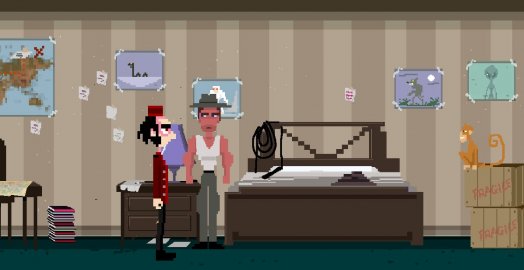
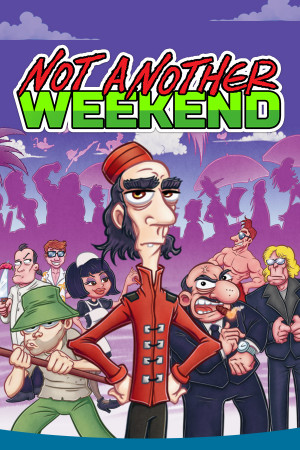
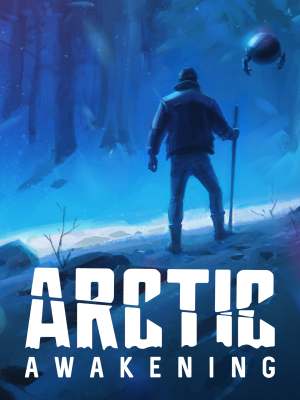




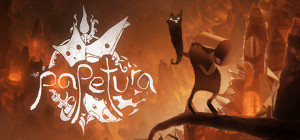


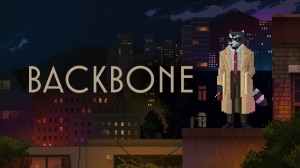
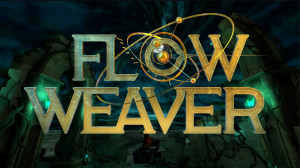
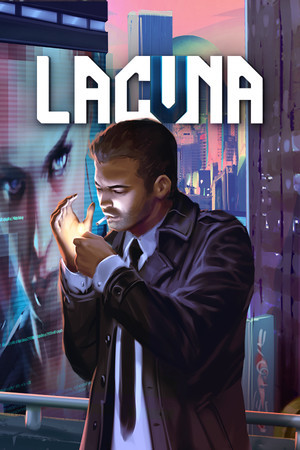
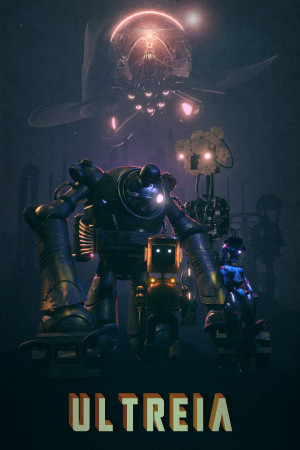

__medium.jpg)
